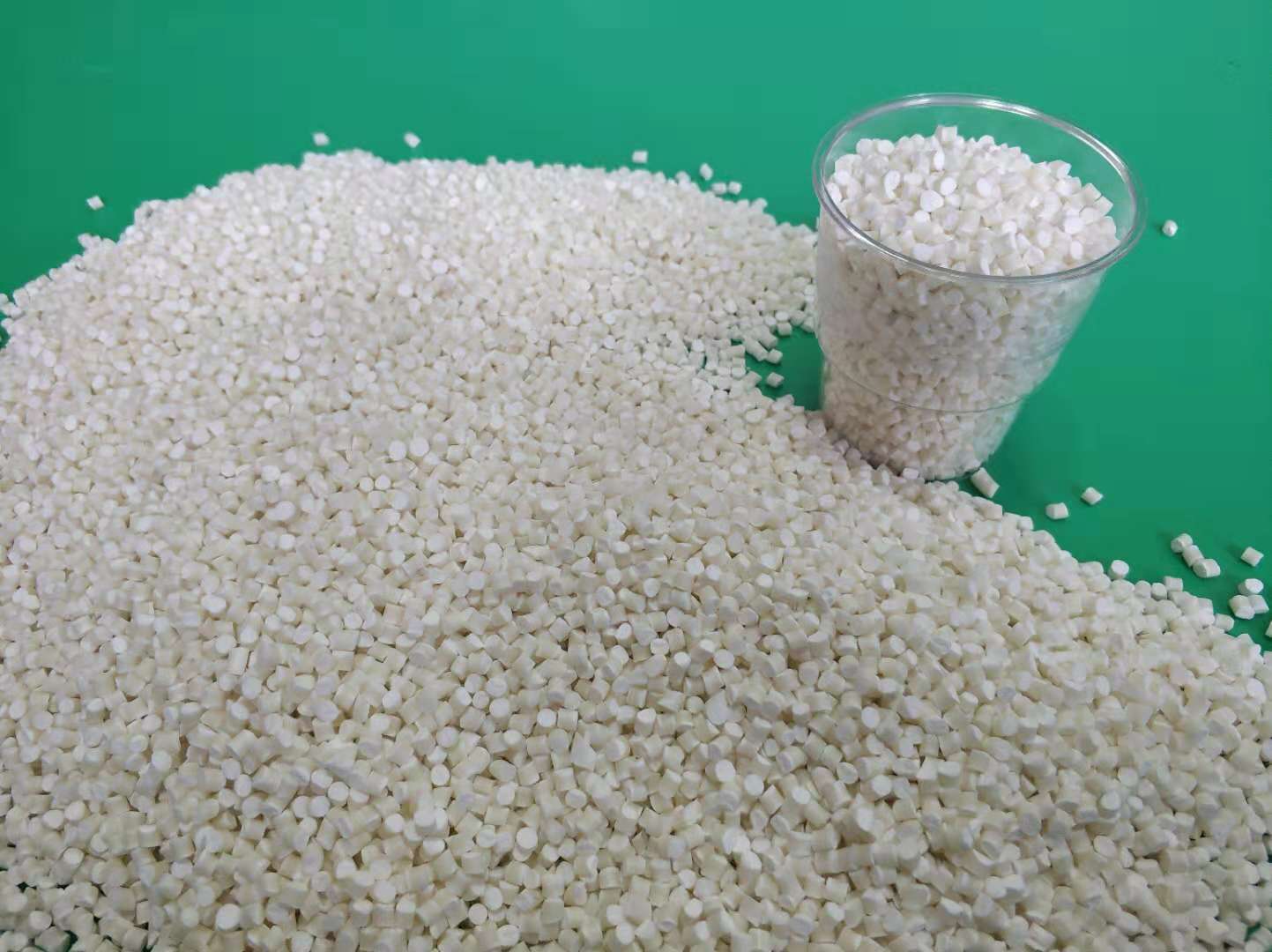-
2018-09-12150碟子
-
2018-09-13一次性環(huán)保餐具-碟子
-
2018-09-14一次性可降解餐具-270ml碗
-
2018-09-14一次性餐具-叉子
-
2018-09-14環(huán)保餐盒
酶法改性對淀粉顆粒理化性質(zhì)介紹
淀粉是由葡萄糖分子聚合而成的高分子化合物,目前主流的商品淀粉按照來源可以分為谷物淀粉、豆類淀粉和根莖類淀粉3 類。直鏈淀粉和支鏈淀粉是淀粉的兩種主要組成成分,淀粉的來源和品種不同,其直鏈淀粉含量也不同。自然界中也存在一些幾乎全部由支鏈淀粉組成的淀粉,即蠟質(zhì)淀粉。作為一種重要的可再生和環(huán)境友好型資源,淀粉及其衍生物在食品、紡織、造紙、制藥、塑料、黏合劑等行業(yè)均有廣泛的應(yīng)用。然而,由于淀粉自身存在一定的缺陷,如不溶于水、糊化溫度過高、糊化后易回生等,極大地限制了其在工業(yè)中的應(yīng)用,因此,對淀粉的改性研究具有重大意義。
Starch is a polymer compound formed by the polymerization of glucose molecules. Currently, mainstream commercial starch can be divided into three categories based on its source: grain starch, legume starch, and rhizome starch. Amylose and amylopectin are the two main components of starch, and their amylose content varies depending on the source and variety of starch. There are also some starches in nature that are almost entirely composed of branched starch, namely waxy starch. As an important renewable and environmentally friendly resource, starch and its derivatives are widely used in industries such as food, textiles, papermaking, pharmaceuticals, plastics, adhesives, etc. However, due to the inherent defects of starch, such as insoluble in water, high gelatinization temperature, and easy retrogradation after gelatinization, its application in industry is greatly limited. Therefore, the study of starch modification is of great significance.
酶法改性淀粉顆粒是在淀粉糊化溫度以下修飾淀粉的一種改性方法。淀粉改性后,其顆粒形態(tài)、分子結(jié)構(gòu)、晶型、結(jié)晶度、溶解度、糊化特性以及流變學(xué)性質(zhì)等發(fā)生改變,可達(dá)到改善淀粉的加工特性并提高其應(yīng)用價值的目的。江南大學(xué)食品學(xué)院,食品科學(xué)與技術(shù)實驗室,食品與營養(yǎng)協(xié)同創(chuàng)新,食品聯(lián)合實驗室的翟一潭、柏玉香、金征宇*等人通過綜述淀粉顆粒酶法改性前后結(jié)構(gòu)與性質(zhì)的變化,以及改性所需的淀粉酶種類、方法等。
Enzymatic modification of starch granules is a modification method that modifies starch below the gelatinization temperature. After starch modification, its particle morphology, molecular structure, crystal form, crystallinity, solubility, gelatinization characteristics, and rheological properties undergo changes, which can improve the processing characteristics of starch and enhance its application value. Zhai Yitan, Bai Yuxiang, Jin Zhengyu * and others from the School of Food Science, Jiangnan University, the State Key Laboratory of Food Science and Technology, the Collaborative Innovation Center for Food Safety and Nutrition, and the International Joint Laboratory of Food Safety reviewed the changes in the structure and properties of starch granules before and after enzymatic modification, as well as the types and methods of amylase required for modification.


天然淀粉以顆粒的形式貯存于植物的各個器官中,主要由直鏈淀粉和支鏈淀粉構(gòu)成。直鏈淀粉呈線性結(jié)構(gòu),幾乎沒有分支,相對分子質(zhì)量介于105~106之間,支鏈淀粉呈高度分支的簇狀結(jié)構(gòu),相對分子質(zhì)量在107~109之間。天然淀粉顆粒由交替出現(xiàn)的“生長環(huán)”的無定形層和半結(jié)晶層組成,厚度在100~400 nm之間。其中,無定形區(qū)主要由直鏈淀粉分子構(gòu)成,半結(jié)晶區(qū)主要由支鏈淀粉分子構(gòu)成;半結(jié)晶區(qū)中又包含結(jié)晶片層和非晶片層。淀粉顆粒這種特殊的無定形區(qū)和半結(jié)晶區(qū)交替出現(xiàn)的排列方式,使得其對光產(chǎn)生了特殊的折射現(xiàn)象,即“偏光十字”。
Natural starch is stored in various organs of plants in the form of granules, mainly composed of amylose and amylopectin. Amylose starch exhibits a linear structure with almost no branching, with a relative molecular weight between 105 and 106. Branched starch exhibits a highly branched cluster structure with a relative molecular weight between 107 and 109. Natural starch particles are composed of alternating amorphous and semi crystalline layers of "growth rings", with a thickness ranging from 100 to 400 nm. Among them, the amorphous region is mainly composed of linear starch molecules, while the semi crystalline region is mainly composed of branched starch molecules; The semi crystalline zone also includes crystalline and amorphous layers. The alternating arrangement of amorphous and semi crystalline regions in starch particles results in a special phenomenon of refraction towards light, known as the "polarized cross".
溶脹力和溶解度
Swelling force and solubility
α-淀粉酶和葡萄糖淀粉酶混合水解淀粉顆粒形成的多孔淀粉比相應(yīng)的原淀粉具有更高的溶脹力和溶解度。經(jīng)過兩次濕熱預(yù)處理后再用混合酶水解制備的多孔小麥淀粉溶解度和溶脹力分別高于天然淀粉和只經(jīng)過兩次濕熱預(yù)處理的淀粉樣品。這種現(xiàn)象與酶水解后無定形區(qū)域的直鏈淀粉浸出有關(guān),從而導(dǎo)致淀粉樣品的溶解度增加。
α- The porous starch formed by the mixed hydrolysis of starch particles by amylase and glucoamylase has higher swelling power and solubility than the corresponding raw starch. After two wet heat pre-treatments, the porous wheat starch prepared by mixed enzyme hydrolysis has higher solubility and swelling power than natural starch and starch samples that have only undergone two wet heat pre-treatments. This phenomenon is related to the leaching of amylose in the amorphous region after enzymatic hydrolysis, resulting in an increase in the solubility of the starch sample.
糊化特性
Gelatinization characteristics
由于對淀粉顆粒的改性在非糊化條件下進(jìn)行,所以改性淀粉仍然保留了糊化特性,并且酶對淀粉顆粒的修飾會改變其糊化溫度和糊化焓。分支酶修飾木薯淀粉顆粒引起改性淀粉糊化起始溫度、糊化峰值溫度和糊化焓升高。糊化起始溫度的升高是由于淀粉顆粒的形態(tài)發(fā)生了變化,以及直鏈淀粉發(fā)生重結(jié)晶。糊化焓的提高表明改性使淀粉顆粒結(jié)構(gòu)的穩(wěn)定性提高。
Due to the modification of starch particles under non gelatinization conditions, the modified starch still retains its gelatinization characteristics, and enzyme modification of starch particles can change their gelatinization temperature and enthalpy. The modification of cassava starch granules by branching enzymes resulted in an increase in the gelatinization starting temperature, gelatinization peak temperature, and gelatinization enthalpy of the modified starch. The increase in gelatinization starting temperature is due to changes in the morphology of starch particles and the recrystallization of amylose. The increase in gelatinization enthalpy indicates that modification enhances the stability of starch particle structure.
流變性能
Rheological properties
脫支酶對淀粉顆粒的修飾會降低糊化過程中的峰值黏度,但降低程度與淀粉來源有關(guān)。在相同的條件下使用脫支酶修飾馬鈴薯淀粉和玉米淀粉顆粒,改性馬鈴薯淀粉峰值黏度顯著下降了56%,而改性玉米淀粉峰值黏度僅降低了15%。淀粉的峰值黏度主要與直鏈淀粉含量、支鏈淀粉的支鏈長度分布以及淀粉中的某些基團(tuán)和脂質(zhì)等成分有關(guān)。
The modification of starch particles by debranching enzymes can reduce the peak viscosity during the gelatinization process, but the degree of reduction is related to the source of starch. Under the same conditions, using debranching enzymes to modify potato starch and corn starch granules significantly reduced the peak viscosity of modified potato starch by 56%, while the peak viscosity of modified corn starch only decreased by 15%. The peak viscosity of starch is mainly related to the content of amylose, the distribution of branch chain length of branched starch, and certain functional groups and lipids in starch.
- 上一個: 實用美觀玉米淀粉顆粒制作產(chǎn)品優(yōu)勢
- 下一個: 什么是一次性生物可降解購物袋
 150碟子
150碟子 一次性環(huán)保餐具-...
一次性環(huán)保餐具-... 一次性可降解餐具...
一次性可降解餐具... 一次性餐具-叉子
一次性餐具-叉子 環(huán)保餐盒
環(huán)保餐盒
相關(guān)產(chǎn)品:





